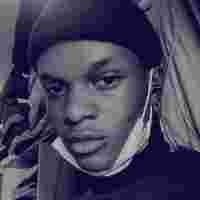Udoka often regards thoughts of death with the weight of uncertainty pressing into the corners of his mind; an unsure kind of sadness in his heart, a secondhand grief gathering in his throat.
It might have been the nature of grief–the startling quality of sad wails and the dramatic flair with which people mourned–that caused him to think of death as an inherently malevolent thing, a thing worthy of being feared.
Once, when he was seventeen and his mother had just received the call informing her of her father’s death, he watched her–this woman for whom the word ‘strong’ had always been a defining adjective–crumble to the floor like a sack of willowy things, a community of broken things. He observed her as she cried, mouth agape in a terrible scream, eyes bleeding tears and red enough he feared she would cry blood too.
He saw her take on a newness in that moment. It should not have startled him, should not have unsettled him in the way that it did and yet he found himself filled with a crippling stillness, wondering if she had not in fact known, months before the call came, that her father would die.
Months later, he left for University and washed away the memory of her grief from his mind, absolved himself of that irrational fear of death.
But he remembers it now, the signature of that fear, the distinct quality that it carries.
He is dressed in black and she is seated across from him on a plush navy blue couch in her living room. She is wearing her favorite house cloth; a breezy, feathery night gown. He remembers that gown, she had worn it religiously throughout his childhood. He is almost surprised that it is still intact.
“I am gay.” He says it softly as though the decibel in his voice might affect the extent to which he knows his words will hurt her.
She is silent. He expected this reaction but it does nothing to ease the tightening in his stomach or the gathering of sweat in his armpits. He averts his eyes from her unreadable face and focuses instead on the crisscrossing design on the carpet beneath his feet. He almost doesn’t notice it when she stands up from the couch and heads into the adjoining kitchen.
She returns with a pink bowl clutched in her hands and for a small moment he imagines that the bowl is filled with water. He imagines that she walks up to him and splashes the water on him, eyes blazing with betrayed fury, mouth agape and screaming in that same terrible manner that had crippled him all those years ago.
But she goes back on the couch and balances the bowl on her thighs. It is filled with melon seeds.
She plucks one seed from the bowl and peels off it’s crisp yellow shell to reveal the cream colored seed inside. She picks another and repeats the pattern. Her movements are methodical. The silence is stifling.
“Since when?” He is almost startled by the gentle resonance of her voice, by the unflinching ease with which she asks the question.
He finds, in that moment, that he does not know what to say. The crunch of egusi shells are the only sounds he can make out in the stillness. He listens closely for another sound, something outside the sphere of his mother’s presence, something from the outside world that might prove that he is not so utterly alone in that moment. Anything that might anchor him. He hears nothing.
“I was born this way, mama.” He is reminded of that Lady Gaga song ‘baby I was born this way’ and he finds that the memory causes him to want to laugh, it unloosens something in his stomach.
She looks up at him from the bowl of egusi seeds and he resolves to hold her stare, to not blink or avert his eyes.
“Nobody is born gay, Udokamma.” Her response is crisp. He has not even had the time to reel before she returns to peeling her egusi, carefully nonchalant of the amalgamation of emotions that clouds his face.
When he says nothing, she takes the incentive to continue.
“There is a pastor on Okigwe street. Very powerful man of God. He will deliver you of this madness.” Her tone is smooth, fluid and precise.
There is something about her easiness that stills Udoka. He watches her, the stylish way in which she avoids looking at him, the utter lack of surprise, the absence of betrayal in her aura. He watches her as she plucks the melon seeds away from their shells and then he comes into the realization that–for a small moment–causes him to lose feelings in his legs.
“You knew.” His words are an accusation.
She does not deny it.
He begins to cry. The reaction startles him but he yields himself to it.
“You knew, all these years. You watched me suffer and all this while you knew?” He tries to hide the betrayal in his voice but it bleeds through nonetheless.
“And so what if I knew? What does it change, Udokamma? Tell me. What does it change?”
The air charges with something electric, something large and cruel and hurtful. He wishes that she will cry too, that her eyes will moisten and that her body will crumble as it had done all those years ago when her father died.
But she does not cry and all he can think about is that call from the neighbours a few hours past that had unmoored him.
“Hello, Udoka. Your mother had a heart attack while peeling Egusi. It happened so suddenly. She’s gone.”
It is him who crumbles instead, him who falls towards the floor like a sack of willowy things. It is him who holds the bowl of egusi seeds and the feathery night gown that carries the unique signature of her musk.




